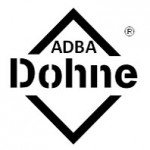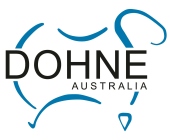Meeting Non Mulesed Wool Demands
JAMES NADIN & TIM MARWEDEL
G SCHNEIDER AUSTRALIA
IN a world becoming increasingly socially conscious on animal welfare, social responsibility and environmental sustainability, the wool industry will always be subject to constant change and innovation.
Over the past 30 years, and in particular the past 3, mulesing has been at the forefront of focus from both within and beyond the industry.
While Australia and New Zealand are at the global forefront of not only government regulation but also a communal push to improve their practices, it can be seen that the
most significant influence on the wool industry is from consumers and retailers.
Due to a few quality assurance schemes back to farm, consumers now have the power to be aware of Australian wool and they can dictate what is acceptable practice. Non mulesed (NM) wool is an important ingredient in these demands. Retail clients now have the power to choose who they buy their raw materials from.
More and more notable industry-leading retailers are now declaring that they will no longer purchase wool from farms who continue to mules.
Unfortunately, the industry has found itself at a point where consumers are unaware that Australian wool growers are in fact the most socially responsible and welfare conscious in the world.
There are ludicrous views that Australian wool producers enjoy harming stock and do not care for them. Having said that, demand is certainly in charge of supply in this instance, and the Dohne breed fits the demand for 18-21 micron wool.
Demand for NM wool has increased dramatically in recent years. While it cannot be guaranteed that monetary premiums on any given sale day are specifically due to NM, as each buyer targets their own specifications, this is certainly a driver of competition in the auction room. This demand is only speculated to exponentially increase into the future.
Reflective of this increase in demand is the increase in supply. 18.5-20.5 micron NM wools offered in season 18-19 jumped 45pc on the previous season. This is supportive of the demand for NM wool in the micron range that fits the general Dohne production.
While it is argued that on a given sale day that NM premiums can be up to 2-3pc, our company suggests that this is actually the result of these wools not being as variable in comparison to mulesed wool types of similar quality. In times like these with so much market fluctuation, it can be shown that NM wool is the most consistently priced. Perhaps the premium should be seen more as an insurance premium. NM wool has a different customer base, more linked to retail.
A key player in the mulesing debate is the development in painrelief products. The use of these products for mulesing has gained a lot of traction in recent years and we strongly encourage those that must mules, should also use an anaesthetic or analgesic, but with a strong preference for the use of both. While Australian wool growers continue to innovate towards best practice, there remains some retailers/consumers that refuse to accept mulesed wool in a traceable supply chain arrangement.
The Schneider group Authentico Quality Assurance program is now recognised by some animal welfare groups as a preferred supply chain partner and Authentico is now attracting global attention in the wool supply chain with regards to best animal welfare protocol. We would encourage all Dohne breeders who maintain best on farm practice,
to consider joining our Authentico programme (www.gschneider.com/authentico).
There are now some breach modification methods seeking grower and consumer support as a positive animal welfare alternative to mulesing. We are waiting for scientific evidence to support the theory of no pain and ultimately our retail clients will decide if it’s acceptable to their consumers.
We endorse any effort of wool growers to minimise animal stress in the case of mulesing, but good sheep management, careful breeding and genetic selection should be the focus. Genetic selection will take time and patience, but it’s essential in the process to move towards a non mulesed flock.
G Schneider understands the need to mules sheep in certain circumstances and will not tell sheep breeders and wool growers how to care for their sheep. Most already do that exceptionally well. All we can do is clearly articulate what our retail clients are demanding.
Non mulesed wool from Australian and other wool producing origins are now in demand. The Dohne breed is producing a wool clip that, when well-bred and managed, meets our client expectation with regards to animal welfare. We are appreciative of the volume of NM wool on the market that originates from the Dohne breed.
Consumers are demanding traceability and to know the origin and source of the products they buy. Dohne sheep meet the demands for non mulesed wool. It’s a naturally bare-breached sheep with Merino wool. For wool processing purposes a fleece length of between 70-95mm is ideal, something the Dohne achieves in 8-12 months. Some plainer bodied merino
types can require extra management to control length to ensure maximum competition from wool processors.
Wool is a natural, versatile, biodegradable and sustainable product. We are confident for the future of this luxury fibre and the industry. Sheep breeders, and in particular Dohne breeders, have a very positive story to tell.












